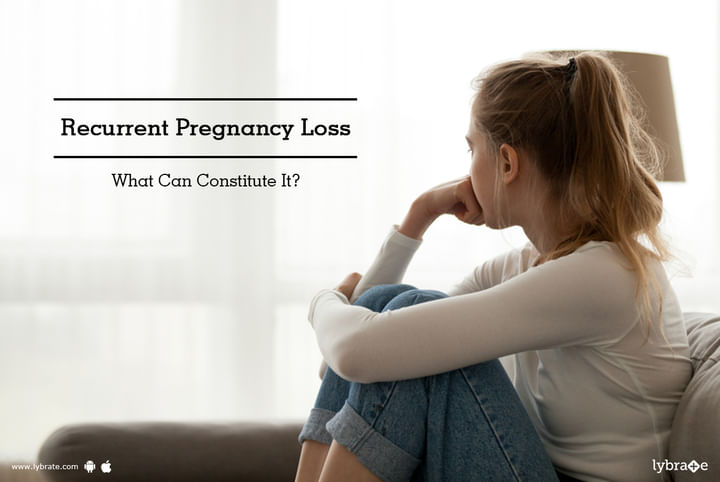Recurrent Pregnancy Loss - What Can Constitute It?
Recurrent miscarriage is a condition when there have been three or more successive pregnancy losses. It is different from infertility as infertility is the inability to conceive. For many cases, the cause of a recurrent miscarriage has not always been found. A number of factors can cause recurrent miscarriages of which some are treatable. It may not always be possible to identify a cause for recurrent miscarriage in a couple even after extensive research and treatment procedures. Some of the common causes of recurrent miscarriage are described below:
1. Chromosomal abnormalities
Incompatible chromosomes can result in pregnancy losses. When an egg and a sperm meet, of which one of them is faulty, they can't line up properly resulting in chromosomal abnormality. Such conditions lead to miscarriages.
2. Uterine abnormalities or Incompetent cervixes
Miscarriages occur if the uterus is abnormally shaped since the embryo is not properly implanted or even if it gets implanted, it may not get sufficient nourishment to survive. If the woman has a weak cervix, it cannot hold the developing embryo, leading to miscarriage.
3. Immunologic disorders
Under rare cases, the embryo itself is not accepted by the body. Antiphospholipid antibodies are antibodies which attack self-tissues such as embryos and prevent them from building up. This leads to miscarriages.
4. Untreated thyroid problems
Conditions such as thyroid or uncontrolled diabetes result in uterine conditions which make it tough for the embryos to survive.
5. Polycystic ovary syndrome
Women with polycystic ovary syndrome tend to have high levels of male hormones which result in irregular menstruation and ovulation. This can prevent the lining of the endometrium from maturing that is required for holding the embryo.
6. Bacterial infections
There may be a presence of a number of micro-organisms inside the reproductive tract that may be harmless for the person. But there may be certain bacteria lined up in the reproductive tract which can prevent the development of an embryo, thus leading to miscarriages.
7. Lifestyle
Smoking and drinking are harmful lifestyle habits which may increase the chances of miscarriages to a great extent. It is always advised to avoid smoking or drinking when you wish to conceive. Other lifestyle conditions, such as working in certain environments like hospital environments, farms, laboratories, etc, may lead to miscarriages; however, the exact reason has not been identified yet.



+1.svg)
